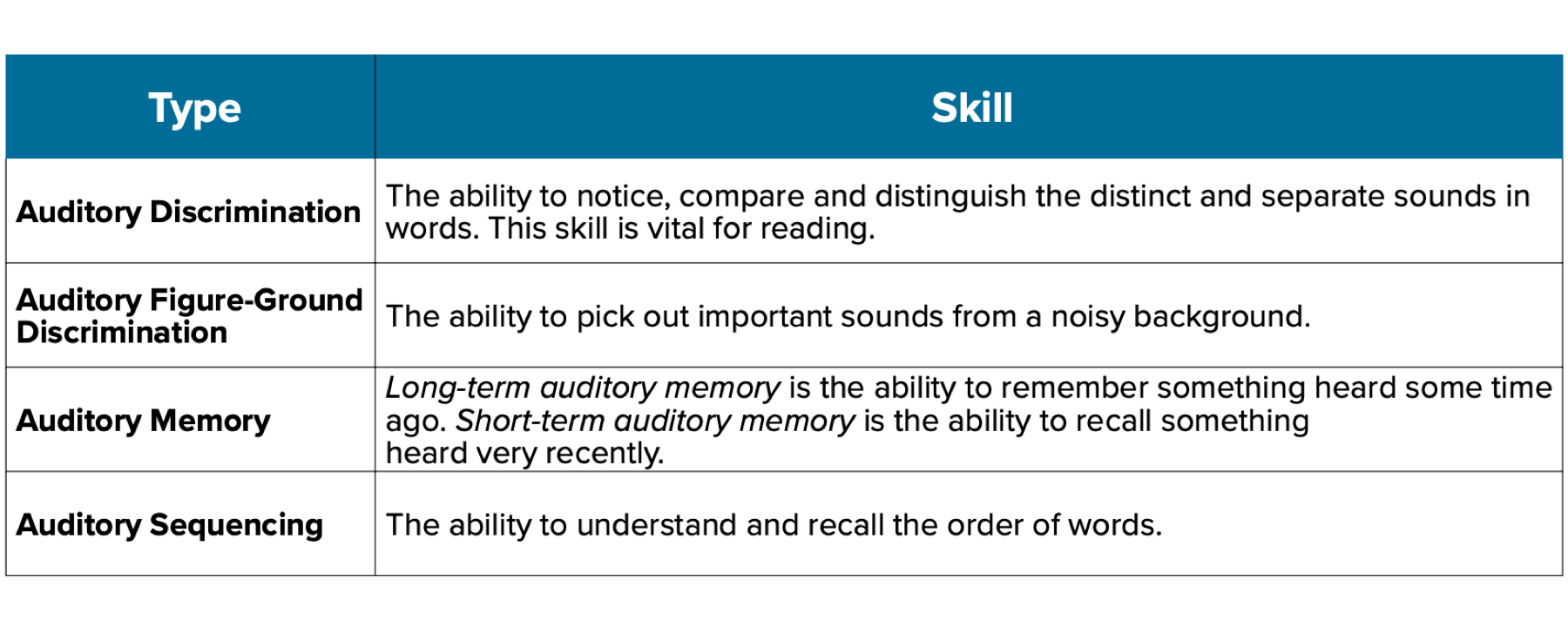In Part 1 of this two-part series on auditory processing disorder (APD), we
- Discussed the two auditory systems.
- Defined APD (the difference between hearing and understanding what you hear).
- Identified who can diagnose APD accurately.
This time, we turn our attention to the symptoms, types of APD, and treatments.
Common symptoms of APD
Children with APD often exhibit the following symptoms:
- Speech or language delays
- Poor auditory attention (drifts off in class)
- Difficulty with phonics and speech-sound discrimination
- Problems sounding out when reading
- Trouble remembering what they hear
- Often misunderstands what is said, needs information repeated
- Problems expressing themselves, both oral and written
- Slow or delayed response to verbal requests and instructions
Don't be alarmed if you spot one or two warning signs of APD in your child now and then. That's normal. However, suppose you spot a consistent pattern over a long time. In that case, you should consider having your child evaluated by a pediatric audiologist.
When children have effective auditory processing, they can distinguish between sounds, pick out speech from a noisy background, and understand speech when sound quality is poor.
Children with APD, however, have a tough time doing these things. As a result, learning in a noisy environment is particularly demanding.
Types of auditory processing disorders
If your child is diagnosed with APD, the next step is to determine the types of auditory disorders your child has. Identifying the types of APD makes it possible for audiologists to plan effective management and treatment of APD.
When you discuss your child's APD with your audiologist, you may hear the terms presented in the table below.

Treating APD
Treatments for APD must be individualized and specific to the deficits the audiologist diagnosed. Effective treatment for one child does not mean it will work for another.
Treatments for APD focus on
- Environmental adaptations — include digital electronics to help listening, changing the delivery of instruction, and other techniques to improve your child's ability to focus on auditory information.
- Compensatory strategies — help kids with ADP use higher-order skills to overcome their auditory deficit. Examples include language development, problem-solving, memory, attention, and other cognitive skills.
- Therapies that directly treat diagnosed deficits — often involve computer-mediated activities, one-on-one training with a speech-language therapist, and activities at home.
If you suspect a problem
If you suspect your child has a communication problem, contact us immediately. A wait-and-see approach is unhelpful.
The symptoms and behaviors of APD are not within your child's control. However, within their control is recognizing the challenges of APD and applying a personalized treatment plan at home and school.
Although some children become adults with APD, using proven strategies designed by audiologists, they can be successful adults.
Audiologists can treat APD successfully, but only if you seek help.
Crest Hill: 630-633-5060 | Palos Hills: 708-599-9500
► APD infographic
About Christy Brand, M.S., CCC-A
Christy decided to become an audiologist in the 8th grade when an audiologist visited her science class. After working for five years, she gave birth to her second child, a son born with profound hearing loss in both ears. Today, Christy has five children, two with profound hearing loss. As you can imagine, she has developed a love and devotion to pediatric audiology.

